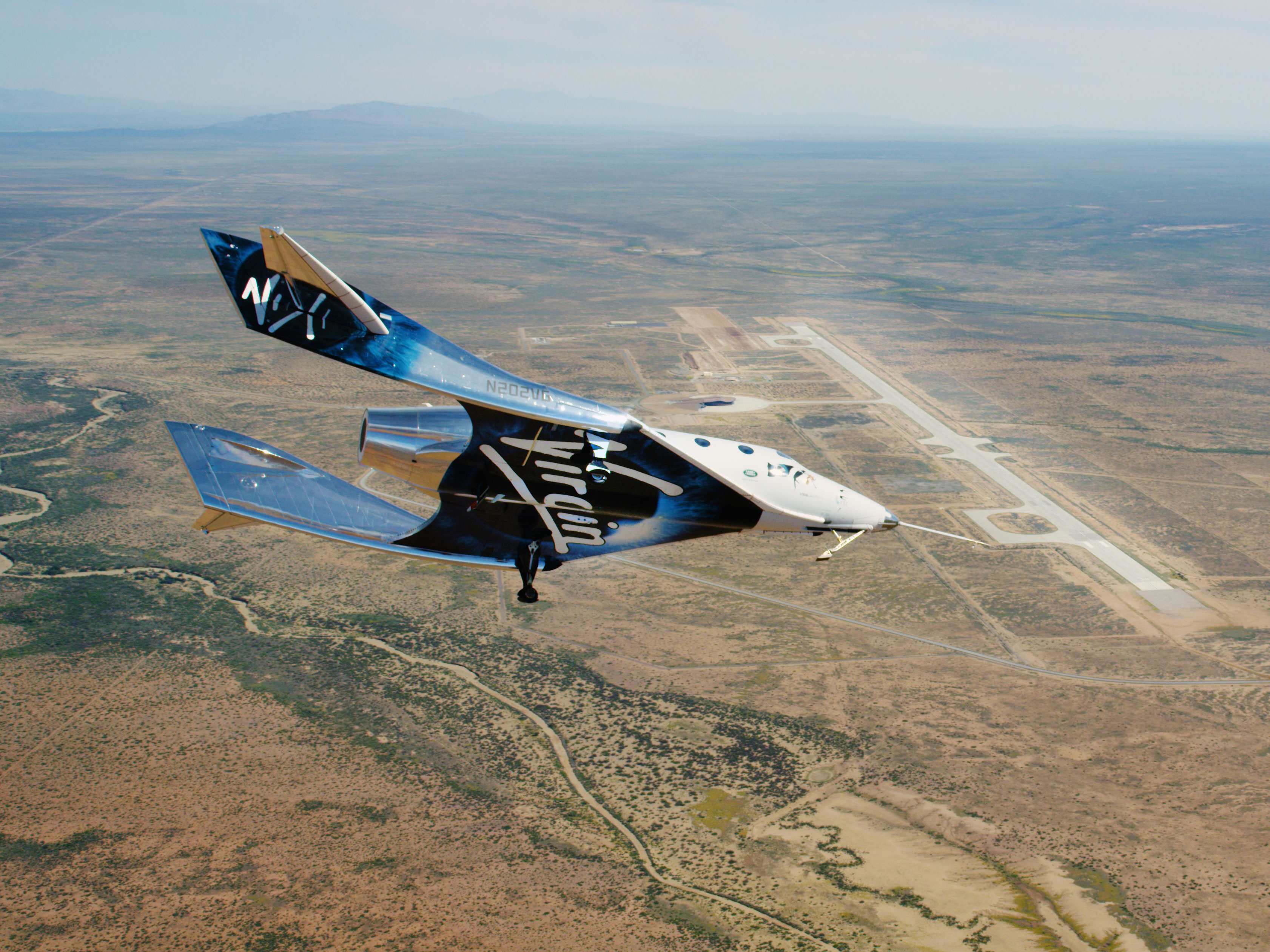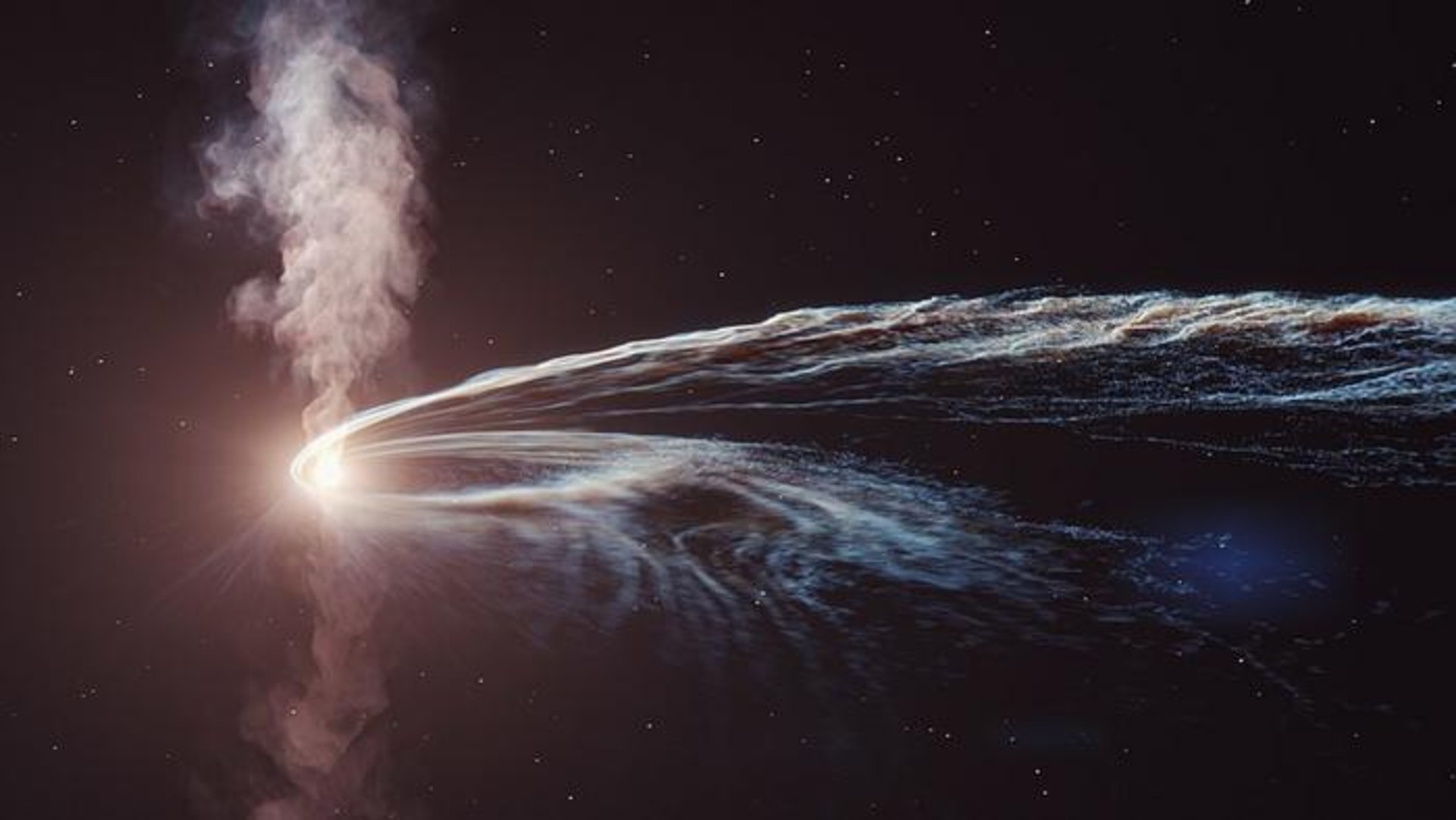Virgin Galactic's SpaceShipTwo makes 1st glide flight over Spaceport America
Breaking space news, the latest updates on rocket launches, skywatching events and more!
You are now subscribed
Your newsletter sign-up was successful
Want to add more newsletters?

Delivered daily
Daily Newsletter
Breaking space news, the latest updates on rocket launches, skywatching events and more!

Once a month
Watch This Space
Sign up to our monthly entertainment newsletter to keep up with all our coverage of the latest sci-fi and space movies, tv shows, games and books.

Once a week
Night Sky This Week
Discover this week's must-see night sky events, moon phases, and stunning astrophotos. Sign up for our skywatching newsletter and explore the universe with us!

Twice a month
Strange New Words
Space.com's Sci-Fi Reader's Club. Read a sci-fi short story every month and join a virtual community of fellow science fiction fans!
Virgin Galactic's newest SpaceShipTwo space plane just flew freely above its New Mexico home base for the first time.
The suborbital spacecraft, named VSS Unity, conducted its first unpowered glide flight over Spaceport America today (May 1), notching a milestone on the path to commercial operations, Virgin Galactic representatives announced.
Unity already had numerous glide and other test flights under its belt. The vehicle has even reached suborbital space twice, on piloted test missions in December 2018 and February 2019. But those flights lifted off from Mojave Air and Space Port in Southern California, near the headquarters of The Spaceship Company, the Virgin Galactic manufacturing subsidiary that built Unity.
Video: See Virgin Galactic's SpaceShipTwo soar over Spaceport America
Related: How Virgin Galactic's SpaceShipTwo works (infographic)
SpaceShipTwo Unity completes a runway landing at Spaceport America, New Mexico finishing its first free flight in New Mexico airspace. pic.twitter.com/iJ1sD1cAmWMay 1, 2020
Unity's test campaign had been based in Mojave until February of this year, when the vehicle arrived at Spaceport America beneath the wings of its WhiteKnightTwo carrier plane, which is called VMS Eve.
The six-passenger SpaceShipTwo is designed to be carried aloft by WhiteKnightTwo, then dropped at an altitude of about 50,000 feet (15,000 meters). At that point, SpaceShipTwo's onboard rocket motor kicks on, blasting the vehicle up to suborbital space.
That latter step didn't happen during today's glide flight. Unity's pilots, Dave Mackay and C.J. Sturckow, steered the space plane through some unpowered milestones, reaching a top speed of Mach 0.7, before bringing it down for a runway landing at Spaceport America, Virgin Galactic representatives said. (Mach 1 is the speed of sound, which is 767 mph, or 1,234 km/h, at sea level.)
Breaking space news, the latest updates on rocket launches, skywatching events and more!
Virgin Galactic took measures to ensure that today's flight was conducted as safely as possible in this coronavirus-pandemic era. The company altered work stations, enforced social distancing procedures and mandated universal mask usage, company representatives said.
"I’d like to congratulate our team for reaching this flight milestone, especially during these challenging times," Virgin Galactic CEO George Whitesides said in a statement. "I am grateful for the commitment displayed by everyone involved, not only in helping to support relief efforts in both New Mexico and California, but also for the dedication and creativity which will allow us to continue safely towards our goal of commercial launch."
Virgin Galactic has not announced a target date for initiation of commercial operations, but it's widely expected to happen soon — perhaps sometime this year.
More than 600 people have booked a seat aboard SpaceShipTwo; tickets currently cost $250,000. People who ride the spacecraft will get to experience a few minutes of weightlessness and see the curvature of Earth against the blackness of space, Virgin Galactic representatives have said.
- Photos: Take a tour of Spaceport America
- Virgin Galactic: Richard Branson's space tourism company
- Amazing Virgin Galactic launch video shows black sky, blue Earth
Mike Wall is the author of "Out There" (Grand Central Publishing, 2018; illustrated by Karl Tate), a book about the search for alien life. Follow him on Twitter @michaeldwall. Follow us on Twitter @Spacedotcom or Facebook.
OFFER: Save 45% on 'All About Space' 'How it Works' and 'All About History'!
For a limited time, you can take out a digital subscription to any of our best-selling science magazines for just $2.38 per month, or 45% off the standard price for the first three months.

Michael Wall is a Senior Space Writer with Space.com and joined the team in 2010. He primarily covers exoplanets, spaceflight and military space, but has been known to dabble in the space art beat. His book about the search for alien life, "Out There," was published on Nov. 13, 2018. Before becoming a science writer, Michael worked as a herpetologist and wildlife biologist. He has a Ph.D. in evolutionary biology from the University of Sydney, Australia, a bachelor's degree from the University of Arizona, and a graduate certificate in science writing from the University of California, Santa Cruz. To find out what his latest project is, you can follow Michael on Twitter.


